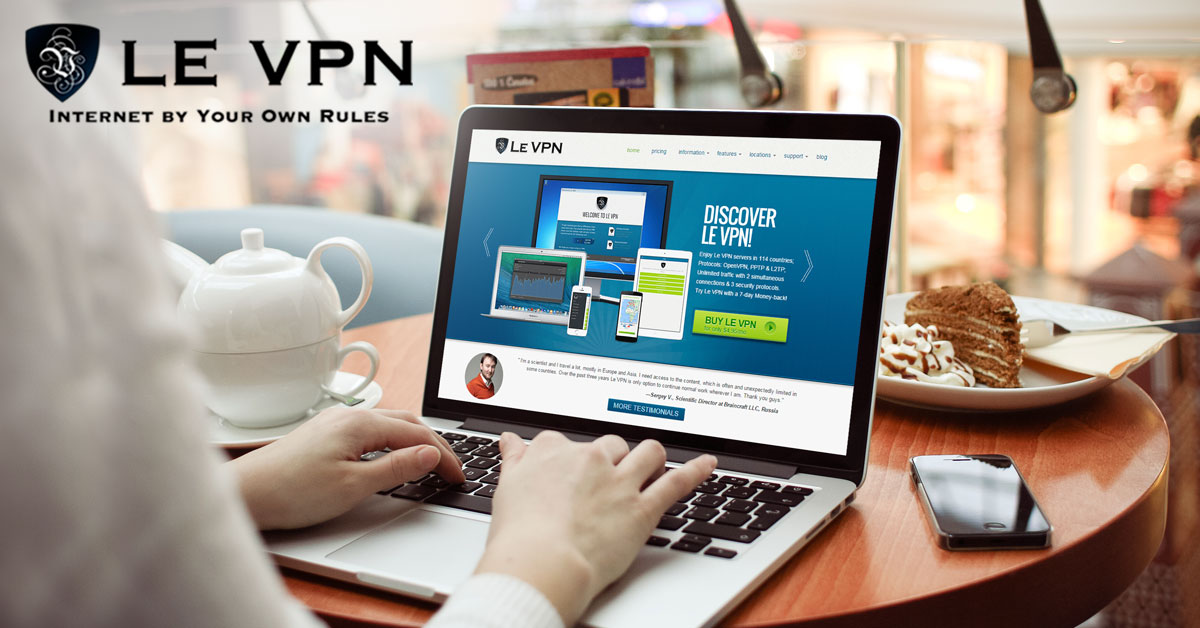Stay safe when using public Wi-Fi
It’s tempting, isn’t it? You’re sitting in a coffee shop, on a train or in a shopping mall, and you notice a free Wi-Fi network. Logging on would let you use your laptop or save data on your smart phone plan.

But there’s one big problem with taking advantage of these public Wi-Fi networks: Your information is completely exposed. This information could include data related to work, or it could include passwords, usernames and other gateway information to access bank accounts, email accounts and other protected portals. For hackers, hacking into your phone or laptop via public Wi-Fi is an entry-level skill that can put your personal information in great jeopardy if you don’t take the proper steps.
A recent experiment held in the Barcelona airport during the Mobile World Congress showed that over 63% of 2000 people did not protect their Internet connection when they connected to a “free wifi” set up by the experiment team. Over 1200 people exposed their device and identity in only 4 hours of the experiment in Barcelona airport, without even realizing it.
- 61.7% searched information on Google or checked their emails on Gmail.
- 14.9% visited Yahoo.
- 52.3% had the Facebook app installed
All of which are known to be easy pathways for hackers to steal your data if you are using them to login to other accounts and applications. Is there a solution to protect your devices, your data and identity when using public Wi-Fi? The short answer is: Yes.
Besides making sure that you are always using safe passwords and sharing only the minimum of critical data via shared networks, encrypting your Internet connection and passing all your online data via a VPN or a virtual private network is the most secure solution. Read on for more tips on safely using public connections.
Four Steps to Greater Security
While it’s tempting to use public Internet connections, it is possible to protect yourself from their dangers. Here are three fast and easy ways to make your public browsing as safe as possible:
- Safe Passwords: Baseline security begins with using safe passwords. If you’re using “password” as a password, or even “123456,” you might as well package up your personal information and give it to hackers. These passwords are among the most popular in the world — and also the most vulnerable. You can create a more nuanced password, or you can use a password manager like Sticky Password that creates a unique secure password on your behalf, as well as other services for greater protection.
- No Sharing: We become used to sharing at home or at work. This is how we access printers, music, files and other data and tools. But when you’re not in the safe confines of your home or office, it’s important that you block sharing to protect your system from strangers using the same public network.
- Use VPN Connections: A VPN, or virtual private network, encrypts your device’s information so hackers can’t hijack your browsing sessions and use cookies to grab your information. There are other benefits to using a VPN connection, too. Read on for more details on how a VPN can help you browse safely.
- Use Precautions on Public Wi-Fi: A public Wi-Fi is just that: public. Unless you take appropriate security precautions, you risk exposing your data to anyone who’s interested, from bored teens to hackers and cyber criminals.
What Exactly Is a VPN?
A VPN is a private and secure virtual tunnel that delivers safer browsing through the military strength encryption of all your online data traveling between your devices and the Internet. It also offers better accessibility to sites and services that may be restricted in your location.
You can explore the many benefits of a VPN connection by visiting the sites of subscription services like Le VPN. Here’s a look at the best VPN protocols for different online experiences, specific to safely browsing on public connections:
- Online Streaming: If you’re using a laptop or desktop to browse or stream online, the best protocol is OpenVPN port 53. This will apply to the majority of online experiences on laptops and desktops.
- Mobile Browsing: Using your phone to browse or stream on a public network? Try PPTP in these circumstances or in any case when OpenVPN is blocked.
- Unavailable Protocols: When all else fails, take advantage of other ports of OpenVPN and of L2TP. This is particularly relevant when you’re in a country or region where online access is limited.
Finding the Best VPN Connection for You
Get the VPN connection you need for enhanced safety when you choose a service like Le VPN. At Le VPN, we offer the secure, private connection you need to unlock the Internet no matter your location or network. We offer all-inclusive subscription plans at one affordable price.
You enjoy access to servers located in 114 countries, which helps ensure you can always safely enjoy online access and streaming services no matter the circumstances. Le VPN users include world travelers, expats, entrepreneurs, as well as individuals and professionals who simply want online security and privacy at all times.
About the author
Alan Summers – Alan is a technical writer and an in-house blogger for Le VPN. He writes on Internet security, online freedom and Internet censorship topics, as well as on the technology and online media news, and his articles can be found at https://www.le-vpn.com/blog.
Twitter: @levpn
Facebook: https://www.facebook.com/levpn/


